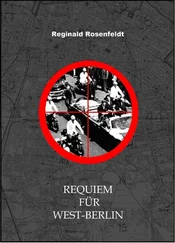Isaiah Berlin - Russian Thinkers
Здесь есть возможность читать онлайн «Isaiah Berlin - Russian Thinkers» весь текст электронной книги совершенно бесплатно (целиком полную версию без сокращений). В некоторых случаях можно слушать аудио, скачать через торрент в формате fb2 и присутствует краткое содержание. Год выпуска: 0101, Жанр: Старинная литература, на русском языке. Описание произведения, (предисловие) а так же отзывы посетителей доступны на портале библиотеки ЛибКат.
- Название:Russian Thinkers
- Автор:
- Жанр:
- Год:0101
- ISBN:нет данных
- Рейтинг книги:3 / 5. Голосов: 1
-
Избранное:Добавить в избранное
- Отзывы:
-
Ваша оценка:
- 60
- 1
- 2
- 3
- 4
- 5
Russian Thinkers: краткое содержание, описание и аннотация
Предлагаем к чтению аннотацию, описание, краткое содержание или предисловие (зависит от того, что написал сам автор книги «Russian Thinkers»). Если вы не нашли необходимую информацию о книге — напишите в комментариях, мы постараемся отыскать её.
Russian Thinkers — читать онлайн бесплатно полную книгу (весь текст) целиком
Ниже представлен текст книги, разбитый по страницам. Система сохранения места последней прочитанной страницы, позволяет с удобством читать онлайн бесплатно книгу «Russian Thinkers», без необходимости каждый раз заново искать на чём Вы остановились. Поставьте закладку, и сможете в любой момент перейти на страницу, на которой закончили чтение.
Интервал:
Закладка:
the years immediately following 1 82 5 and knew the temper of the
Emperor, was remarkable enough. The limits of freedom were, of
course, exceedingly narrow; the most arresting Russian social document of this period, apart from the writings of the emigres, was Belinsky's open letter to Gogol denouncing his book Selected Extracts
1 'Za rubezhom', Pobrot Jolmmit Jocltirmrii (Moscow/Leningrad, 1933-
1 94 1 ), vol. 14. p. 16z.
8


R U S S IA AND 1 84 8
from a Corrtspondtnct with Frimds, and that remained unpublished in
Russia in its full version until 19 I 7. And no wonder, for it was an
exceptionally eloquent and savage onslaught on the regime, inveighing
violently against the Church, the social system and the arbitrary
authority of the Emperor and his officials, and accusing Gogo! of
traducing the cause of liberty and civilisation as well as the character
and the needs of his enslaved and helpless country. This celebrated
philippic, written in I 84-7, was secretly circulated in manuscript far
beyond the confines of Moscow or St Petersburg. Indeed, it was
largely for reading this letter aloud at a private gathering of disaffected
persons that Dostoevsky was condemned to death and so nearly
executed two years later. In I 843 subversive French doctrines were,
so Annenkov tells us, openly discussed in the capital : the police official,
Liprandi, found forbidden western texts openly displayed in the bookshops. In the year I 847, Henen, Belinsky and Turgenev met Bakunin and other Russian political emigre. in Paris-their new moral
and political experiences found some echo in the radical Russian press;
this year marks the highest point of relative toleration on the part of
the censorship. The revolution of I 848 put an end to all this for
some years to come.
The story is familiar and may be found in Shilder.1 Upon receipt
of the news of the abdication of Louis Philippe and the declaration of
a republic in France, the Emperor Nicholas, feeling that his worst
forebodings about the instability of European regimes were about to
be fulfilled, decided to take immediate action. According to Grimm's
(almost certainly apocryphal) account, as soon as he heard the disastrous news from Paris, he drove to the palace of his son, the future Tsar Alexander II, where an eve-of-Lent ball was in progress.
Bursting into the ballroom, he stopped the dancers with an imperious
gesture, cried 'Gentlemen, saddle your horses, a republic has been
proclaimed in France !' and with a group of courtiers swept out of the
room. Whether or not this dramatic episode ever occurred-Shilder
does not believe it-it conveys the general atmosphere accurately
enough. Prince Petr Volkonsky at about this time told V. I. Panaev
that the Tsar seemed bent on declaring a preventive war in Europe
and was only stopped by lack of money. As it was, large reinforce-
1 N. K. Shilder, lmptrator Nikolay PtrOJi, tgo :r.Aiu' i tsarslfJIJtJatrit
(St Petenburg, 1903), 'Primechaniya i prilozheniya ko vtoromu tomu'
('Notes and Supplements to Volume 2'), pp. 619-2 1 .
9
R U SS IAN T H I N K E R S
ments were sent to guard the 'western provinces', i.e. Poland. That
unhappy country, broken not only by the savage repression of the
rebellion of 1 83 1 , but by the measures taken after the Galician
peasant rising in 1 846, did not stir. But Polish liberty was being
acclaimed, and Russian autocracy denounced, as a matter of course,
at every liberal banquet in Paris and elsewhere; and, although this
awoke no echo in Warsaw, then under the heel of Paskevich, the
Tsar suspected treason everywhere. Indeed, one of the principal
reasons why such importance was attached to the capture of Bakunin
was the Tsar's belief that he was in close touch with Polish emigreswhich was true-and that they were plotting a new Polish mutiny in which Bakunin was involved- which was false-although Bakunin's
extravagant public utterances may have lent some colour to such a
supposition. Bakunin at the time of his imprisonment seems to have
been entirely unaware of this obsession on the part of the Tsar and
therefore ignorant throughout of what was expected of him. He failed
to include the non-existent Polish plot in his otherwise imaginative
and altogether too accommodating confession. Soon after the outbreak
in Berlin, the Tsar published a manifesto, i n which he declared that
the wave of mutiny and chaos had fortunately not reached the impregnable frontiers of the Russian Empire; that he would do everything in his power to stop this spreading of the political plague, and that he
felt certain that all his loyal subjects would, at such a moment, rally
to him in order to avert the danger to the throne and to the Church.
The Chancellor, Count Nesselrode, caused an inspired commentary
on the Tsar's manifesto to appear in the 'Journal de St Pltershourg,
seeking to mitigate its bellicose tone. Whatever the effect on Europe,
in Russia the commentary seems to have deceived no one: it was
known that Nicholas had drafted the manifesto with his own hand,
and had read it to Baron Korf with tears in his eyes. Korf too was
apparently almost reduced to tears1 and at once destroyed the draft
which he had been commissioned to prepare, as unworthy. The heirapparent, Alexander, when he read the manifesto to a meeting of guards officers, was overcome by emotion; Prince Orlov, the head of
the gendarmerie, was no less deeply moved. The document stimulated
a genuine surge of patriotic feeling, although this does not appear to
have lasted long. The Tsar's policy corresponded to some degree with
1 See Shilder, op. cit. (p. 9, note I above), on which the account of this
episode is based.
J O

R U S S IA AND 1 84 8
popular feeling, at any rate among th e upper and official �. I n
1 849, Russian armies, commanded by Paskevich, crushed the revolution in Hungary; Russian influence played a major part in the suppression of the revolution in the other provinces of the Austrian Empire and in Prussia; the power of Russia in Europe, and the terror
and hatred which it inspired in the breast of every liberal and constitutionalist beyond its borders, reached their zenith. Russia was to the democrats of this period very much what the fascist powers were
in our own time: the arch-enemy of freedom and enlightenment, the
reservoir of darkness, cruelty and oppression, the land most frequently,
most violently denounced by its own exiled sons, the sinister power,
served by innumerable spies and informers, whose hidden hand was
discovered in every political development unfavourable to the growth
of national or individual liberty in Europe. This wave of liberal
indignation confirmed Nicholas in his conviction that, by his example,
no less than by his exertions, he had saved Europe from moral and
political ruin: his duty had at all times been plain to him; he carried
it out methodically and ruthlessly, unmoved by either flattery or
abuse.
The effect of the revolution on internal affairs in Russia was
immediate and powerful. All plans for agrarian reform, and in particular all proposals for the alleviation of the condition of the serfs, both private and state-owned, not to speak of plans for their liberation
Читать дальшеИнтервал:
Закладка:
Похожие книги на «Russian Thinkers»
Представляем Вашему вниманию похожие книги на «Russian Thinkers» списком для выбора. Мы отобрали схожую по названию и смыслу литературу в надежде предоставить читателям больше вариантов отыскать новые, интересные, ещё непрочитанные произведения.
Обсуждение, отзывы о книге «Russian Thinkers» и просто собственные мнения читателей. Оставьте ваши комментарии, напишите, что Вы думаете о произведении, его смысле или главных героях. Укажите что конкретно понравилось, а что нет, и почему Вы так считаете.










